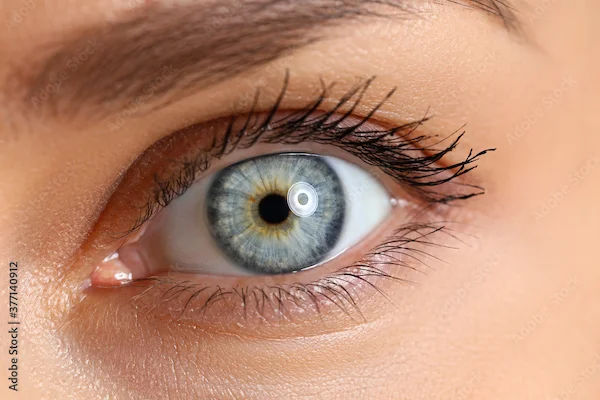Intraocular Implants After Cataract Surgery
Learn about intraocular lens (IOL) implants after cataract surgery, including types, benefits, recovery tips, and what to expect from the procedure.

Written by Dr.Sonia Bhatt
Last updated on 15th Jul, 2025

Introduction
Cataracts are a common eye condition, especially as we age. They cause the eye’s natural lens to become cloudy, leading to blurry vision, difficulty seeing at night, and faded colours. The good news is that cataract surgery is a safe and effective way to restore clear vision. During this procedure, the cloudy lens is removed and replaced with an intraocular lens (IOL) implant.
If you or a loved one is considering cataract surgery, understanding intraocular implants can help you make informed decisions. Let’s explore what IOLs are, their types, benefits, and what to expect after surgery.
What Are Intraocular Implants (IOLs)?
An intraocular lens (IOL) is a tiny, artificial lens placed inside the eye during cataract surgery. It replaces the eye’s natural lens, helping to restore clear vision. Unlike glasses or contact lenses, an IOL stays permanently in the eye.
There are different types of IOLs available, each designed to meet specific vision needs:
1. Monofocal IOLs – These lenses provide clear vision at one fixed distance, usually distance vision. You may still need glasses for reading or close-up work.
2. Multifocal IOLs – These lenses allow clear vision at multiple distances (near, intermediate, and far), reducing dependence on glasses.
3. Toric IOLs – Designed for people with astigmatism, these lenses correct both cataracts and astigmatism.
4. Accommodating IOLs – These lenses adjust focus naturally, allowing better vision at different distances.
5. Extended Depth of Focus (EDOF) IOLs – A newer option that provides a continuous range of vision, especially useful for intermediate tasks like computer work.
Your eye doctor will help you choose the best IOL based on your lifestyle, eye health, and vision needs.
Consult Top Specialists for Personalised Health Advice
How Does Cataract Surgery with IOL Implantation Work?
Cataract surgery is a quick and safe procedure, usually completed in 15–30 minutes. Here’s what happens:
1. Preparation – Your eye will be numbed with drops or a local anaesthetic.
2. Lens Removal – The surgeon makes a tiny incision and uses ultrasound (phacoemulsification) to break up and remove the cloudy lens.
3. IOL Placement – The artificial lens is inserted through the same incision and positioned in place.
4. Recovery – No stitches are usually needed, and the eye heals naturally.
Most patients notice improved vision within a few days, with full recovery in about 4–6 weeks.
Benefits of Intraocular Implants
Intraocular lenses provide several advantages beyond just clearer vision.
Clearer Vision – IOLs restore sharp, bright vision.
Reduced Dependence on Glasses – Some IOLs minimise the need for glasses.
Long-lasting Solution – IOLs are permanent and do not require replacement.
Improved Quality of Life – Better vision means more independence and confidence in daily activities.
What to Expect After Surgery
Knowing what happens after surgery can help you prepare for a smooth recovery.
1. Immediate Recovery (First Few Days)
Your eye may feel slightly itchy or gritty.
You’ll need to wear a protective shield at night.
Avoid rubbing your eye.
Use prescribed eye drops to prevent infection and inflammation.
2. First Few Weeks
Vision gradually improves as the eye heals.
Avoid heavy lifting, swimming, or dusty environments.
Attend follow-up visits with your doctor.
3. Long-term Care
Most people can resume normal activities within a week.
Wear sunglasses outdoors to protect your eyes from UV rays.
Regular eye check-ups help monitor eye health.
Possible Risks and Complications
While cataract surgery with IOL implantation is very safe, some rare risks include:
Infection or inflammation
Dislocated IOL (rare)
Posterior Capsule Opacification (PCO) treatable with a quick laser procedure
Most complications are minor and can be managed with prompt medical care.
Tips for a Smooth Recovery
A few simple steps can help your eyes heal faster and protect your new lens.
Follow your doctor’s instructions for eye drops and medications.
Avoid strenuous activities for a few weeks.
Protect your eyes from dust, water, and bright sunlight.
Eat a healthy diet rich in vitamins A, C, and E to support eye health.
Stay hydrated to help with healing.
When to Consult a Doctor
If you experience any of the following, contact your eye specialist immediately:
Severe pain or sudden vision loss
Increased redness or swelling
Flashes of light or floating spots
Final Thoughts
Intraocular implants have revolutionised cataract treatment, offering millions of people a chance to see clearly again. With advancements in IOL technology, many patients enjoy improved vision with minimal dependence on glasses.
If you or someone you know is experiencing cataract symptoms, don’t wait—early treatment leads to the best outcomes. Book a consultation with an Apollo24|7 eye specialist today to explore your options and get personalised care.
Consult Top Eye Specialists
Consult Top Specialists for Personalised Health Advice

Dr. Smriti Nagpal
Ophthalmologist
13 Years • MBBS , MS (Ophthalmology)
New Delhi
Sunshine mediclinic, New Delhi
Dr. Padmini S
Ophthalmologist
4 Years • MBBS,MS
Bengaluru
Apollo Medical Center, Marathahalli, Bengaluru

Dr. Rajeev Gupta
Ophthalmologist
24 Years • MBBS, MS (Ophthalmology)
Ghaziabad
Om Eye & Gynae Centre, Ghaziabad

Dr. Vyankatesh Pharande
Ophthalmologist
25 Years • MBBS, MS (Ophthalmology )
Pune
PHARANDE EYE HOSPITAL & PHACO CENTER, Pune
Dr. Sumit Rastogi
Ophthalmologist
21 Years • MBBS,MS Opthamology
Kolkata
Trinity Clinic, Kolkata
Consult Top Eye Specialists

Dr. Smriti Nagpal
Ophthalmologist
13 Years • MBBS , MS (Ophthalmology)
New Delhi
Sunshine mediclinic, New Delhi
Dr. Padmini S
Ophthalmologist
4 Years • MBBS,MS
Bengaluru
Apollo Medical Center, Marathahalli, Bengaluru

Dr. Rajeev Gupta
Ophthalmologist
24 Years • MBBS, MS (Ophthalmology)
Ghaziabad
Om Eye & Gynae Centre, Ghaziabad

Dr. Vyankatesh Pharande
Ophthalmologist
25 Years • MBBS, MS (Ophthalmology )
Pune
PHARANDE EYE HOSPITAL & PHACO CENTER, Pune
Dr. Sumit Rastogi
Ophthalmologist
21 Years • MBBS,MS Opthamology
Kolkata
Trinity Clinic, Kolkata

.webp)
.webp)

